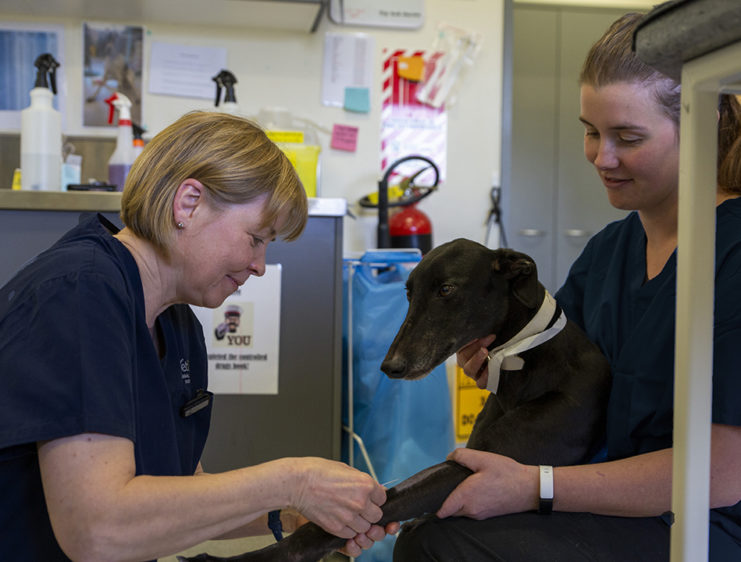

Preparing for Dry-off and Mastitis Prevention

Drying cows off is an opportunity to reduce herd mastitis which only happens once a year. Doing this job well can have great results. Mistakes and treatment failures are frustrating and costly. This means having a good plan and great records of what happened to which cows and when is becoming essential. What’s the […]
READ MORE

What is the Right Diet for my Cows?

This is a question I hear often… but not often enough! Why not often enough? Because occasionally I am called in after the fact, when the cows are way behind production targets or the breeding has been terrible, or both. In these cases, by the time I am called it is too late, the damage […]
READ MORE

Cow Monitoring and Mastitis

The use of cow monitoring technology in heat detection and rumination changes, has become commonplace on many dairy farms around New Zealand, but how about its use for detecting mastitis and reducing the financial impact of one of the most prevalent health issues in the New Zealand dairy herd? Detecting mastitis with cow monitoring devices […]
READ MORE

UBAC®: Changing the Face of Mastitis Prevention

“UBAC®,” is an exciting development in treating mastitis which is likely the largest cost to the New Zealand dairy industry. It was estimated to cost approximately $180 million for the 2005/2006 dairy season (National Mastitis Advisory Committee, 2006). While several factors can influence the costs per cow on an individual farm, Compton and McDougall (2011) estimated […]
READ MORE

Can Vaccine Use Reduce Antibiotic Use in Animals?

The New Zealand Veterinary Association (NZVA) has as its goal that, by 2030, New Zealand will not need antibiotics for the maintenance of animal health and wellness. One may ask just how will this be achievable? Antibiotics have revolutionised the health and well-being of both humans and animals during the 20th century. But 96 years […]
READ MORE

Antibiotic Reduction

Antibiotic reduction is a major topic in the livestock sector. The pressure is on to reduce the use of antibiotics and in doing so, it also has a direct impact on the human health aspect. Antimicrobial resistance facts Some key facts from the World Health Organization website: Antimicrobial resistance (AMR) is one of the top […]
READ MORE

Understanding Canine Parvovirus: Symptoms and Treatment

Parvovirus… it’s a diagnosis that every pet parent and vet clinic dreads, and one that can take the life of a previously healthy puppy in a matter of days. Canine parvovirus is a highly contagious viral disease that affects dogs, particularly puppies. It is a serious and potentially fatal illness that can cause severe gastrointestinal […]
READ MORE

Heat Behaviour in Pregnant Cows

During pregnancy testing, we often find cows that are pregnant but not to their most recent insemination. With the recent uptake of automated heat detection, more questions have been raised about this – why are pregnant cows being inseminated when we are using the most accurate heat detection currently available? How cow monitoring data works […]
READ MORE

Maximising On-farm Efficiency

When my 10-year-old finished watching BBC’s ‘Newsround’ last week, I asked him “what was in the news today?”. I was surprised, expecting to hear about the Gaza conflict, when he answered “oh, they were talking about NZ sheep and how they cause global warming”. The role sustainability plays Perhaps I should not have been surprised, […]
READ MORE

Lame Stags – is there a new condition affecting our industry?

Written by Andrew Bates – Vetlife Scientific This year has been tough for deer farmers, with uncertainties over continued access to overseas export markets, mixed pricing messages and an increasingly fragmented market. Vetlife recognises the challenges facing its farming clients and is committed to supporting animal agriculture in New Zealand for the long haul. Part […]
READ MORE

Sheep Pain Relief Best Practice

While care is taken to avoid shearing nicks and cuts, it’s not possible to completely prevent them. Thankfully, you can ensure animals don’t suffer as much as a result. Modern pain relief and wound care can easily be incorporated into good flock management practices. There are several products available now that can help reduce inflammation […]
READ MORE

Toxic Algae or Cyanobacterial Toxicosis

Algae is present in many of New Zealand’s lakes and rivers all year round, and is found across a range of water qualities (including high quality). In periods of warm weather and low water flow, toxic species of algae can outgrow non-toxic, species. Levels can change dramatically from one day to the next and aren’t […]
READ MORE

Get in touch with your local Vetlife Clinic today to discuss your animal’s health concerns.
With 18 clinics based throughout the South Island, we look forward to welcoming you into one of our Vetlife clinics.
FIND A CLINIC